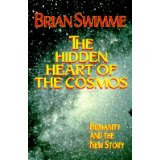Friday, January 6, 2012
Review Of R. D. Krumpos’ E-Book On Mysticism--Introduction
Keeping An Open Mind
Jan. 2012
What is the place of religion in an age of science? How can one believe in God today? What view of God is consistent with the scientific understanding of the world? In what ways should our ideas about human nature be affected by the findings of contemporary science? How can the search for meaning and purpose in life be fulfilled in the kind of world disclosed by science?
In the preface of his book, "Masks Of The Universe," Edward Harrison (Professor of Physics and Astronomy at the University of Massachusetts) writes:
“I take the view that we, and we alone, are the makers and shakers of the universes in which we live. The comfort I offer, if any, is of the kind that once sustained the medieval mystics who, while aware of much knowledge, had the sense to admit that they lived in ‘the cloud of unknowing.’ The message I offer, if any, is that the mysteries are vastly more profound and the mind vastly more potent than we commonly imagine, perhaps more than we can ever imagine.”
Brian Swimme (Professor of Physics and Cosmology at the California Institute of Integral Studies) writes in the preface of his book, "The Hidden Heart Of The Cosmos":
“From the beginning, humans have been pondering the ultimate nature of existence. Shamans and sages, philosophers and saints, rishis and rabbis and theologians, all in their various ways, have reflected on the deep and endlessly fascinating questions of existence….The question I consider in the present volume is perhaps the most ancient of all ‘Where did it all come from? Where is the center of reality? Where is the heart or source of the universe? Where is that place where everything sprang forth into existence?’”
And, in the Forward of Alan Watts’ (British Philosopher and ordained Zen monk) book, "The Joyous Cosmology," we read:
“We are dealing here with an issue that is not new, an issue that has been considered for centuries by mystics, by philosophers of the religious experience, by those rare and truly great scientists who have been able to move in and then out beyond the limits of the science game. It was seen and described clearly by the great American psychologist William James:
‘…our normal waking consciousness, rational consciousness as we call it, is but one special type of consciousness, whilst all about it, parted from it by the filmiest of screens, there lie potential forms of consciousness entirely different. We may go through life without suspecting their existence; but apply the requisite stimulus, and at a touch they are there in all their completeness, definite types of mentality which probably somewhere have their field of application and adaptation. No account of the universe in its totality can be final which leaves these other forms of consciousness quite disregarded. How to regard them is the question,--for they are so discontinuous with ordinary consciousness. Yet they may determine attitudes though they cannot furnish formulas, and open a region though they fail to give a map. At any rate, they forbid a premature closing of our accounts with reality. Looking back on my own experiences, they all converge toward a kind of insight to which I cannot help ascribing some metaphysical significance.’”
Subscribe to:
Post Comments (Atom)







No comments:
Post a Comment